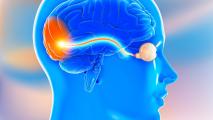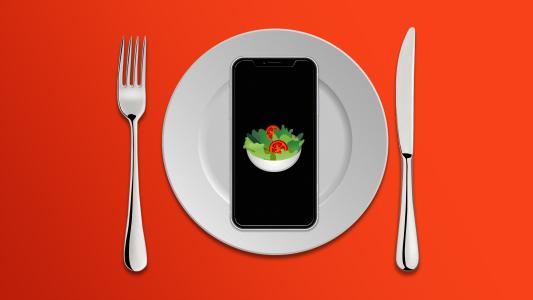Humans are inherently social creatures — connecting with others makes us happier, healthier, and even smarter. On the flip side, social isolation can wreak havoc on our physical and mental health.
The pandemic has shone a spotlight on this issue — people who once had full social calendars are now finding themselves stuck at home — but social isolation has been a problem for seniors since long before 2020.
Since they’re more likely to live alone, have lost family and friends, and experience chronic illnesses that stand in the way of a social life, seniors are also more likely to experience social isolation, which puts them at higher risk of dementia, heart disease, and even premature death.
Now, a trio of Texan teens has used the free time afforded to them by lockdowns to create Big & Mini, an online platform that sets up video chats between seniors and young people — combating social isolation while promoting connection across generations.
Find Your Match
Big & Mini works similarly to a dating app, but instead of matching compatible singles, it matches mentors (“Bigs”) with mentees (“Minis”). There are no age requirements for being a Big or a Mini — users choose their label — but generally, Bigs are seniors and Minis are younger people.
To start the process, each person completes a survey, answering questions about themselves and their interests. Initially, the co-founders would then manually match Bigs and Minis based on their answers, but they’ve since automated that process.
Users then get an email with details on their match and the time and date of their first video chat.
This meeting will take place via Jitsi, an open-source video conferencing service. The co-founders chose this platform because it requires less tech savvy to navigate than comparable services, such as Zoom — no downloading or installation of software required.
After the first chat, both the Big and Mini will get a survey asking if they want to schedule another with that person or meet someone new.
A Social Isolation Solution
All three of the site’s co-founders — University of Texas at Austin students Allen Zhou and Aditi Merchant and Zhou’s younger brother, Anthony — had volunteered in nursing homes prior to the pandemic.
When the lockdowns began, they were forced to combat the social isolation they already knew was a problem for seniors in those facilities.
Creating Big & Mini was our way of solving two problems at once.
Aditi Merchant
“We found ourselves feeling lonely, even though we were constantly connected with phones, and we had our families and everything,” Merchant said. “So we imagined that, for a lot of seniors or older adults, it would be significantly more difficult to find those connections.”
“When we saw that this was a problem, we decided this is something we can do,” the older Zhou said. “We can leverage our software expertise to connect people.”
Within a week, the trio had built the first version of Big & Mini.
“Creating Big & Mini was our way of solving two problems at once,” Merchant told OneZero. “From the perspective of the ‘Big,’ they are gaining companionship while on the side of the ‘Mini,’ they are gaining access to mentorship.”
As of August 6, Big & Mini had about 1,000 users. In the future, the site’s creators plan to reach out to youth groups and organizations catering to seniors as a way of connecting with many potential users at once.
They don’t plan to shutter the site when the pandemic ends, either — the problem of social isolation among seniors will still be around and so will Big & Mini.
We’d love to hear from you! If you have a comment about this article or if you have a tip for a future Freethink story, please email us at tips@freethink.com.






